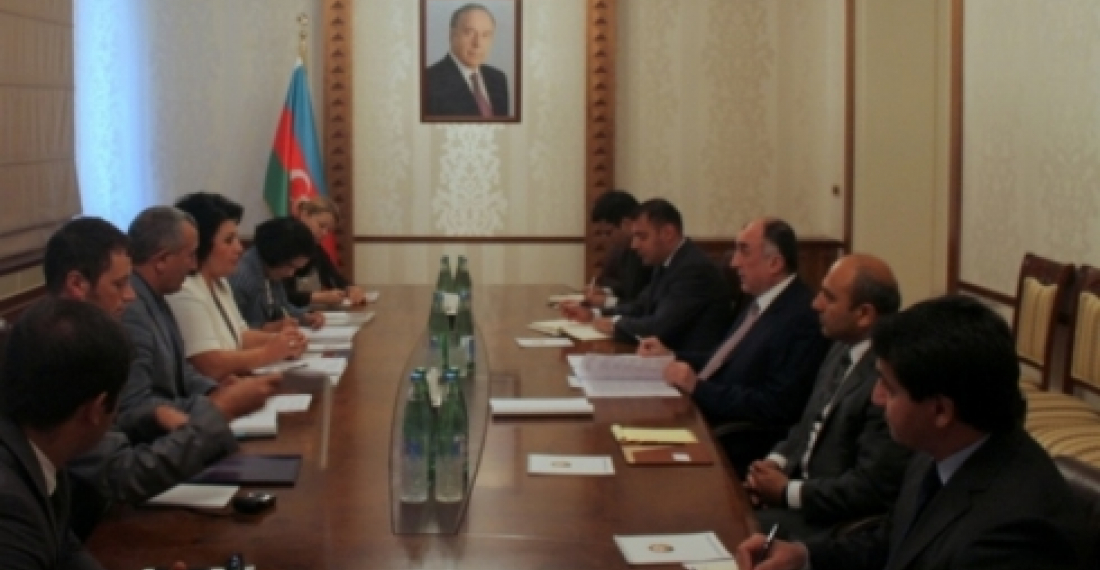"Азербайджан недоволен работой МГ ОБСЕ. Мы остались бы довольными Минской группой лишь в случае вывода армии Армении с оккупированных территорий. Но они не смогли добиться этого". По данным сайта Министерства иностранных дел Азербайджана, об этом министр иностранных дел Азербайджана Эльмар Мамедъяров заявил во вторник, 25 августа, во время встречи с докладчиком Парламентской Ассамблеи Совета Европы Меличей Маркович в Баку. Маркович в настоящее время находится в Азербайджане, где готовит доклад об условиях азербайджанцев, проживающих в зоне карабахского конфликта.
Минская группа ОБСЕ сопредседателями которой являются дипломаты от Франции, России и Соединенных Штатов уполномочена международным сообществом мандатом посредника между сторонами, с тем чтобы найти мирное решение конфликта вокруг Нагорного Карабаха с участием Армении и Азербайджана. Группа существует с 1992 года, но ей не удалось продвинуться в поиске решения конфликта.
Касательно слов министра иностранных дел Азербайджана по словам политического редактора Commonspace.eu "хотя в прошлом критика Минской группы и сопредседателей в Азербайджане уже звучала министр иностранных дел Эльмар Мамедъяров, который является основной точкой контакта между посредниками и правительством Азербайджана, как правило, не участвовал в этом. Публичная критика группы со стороны министра иностранных дел, кажется, ставит отношения между Азербайджаном и сопредседателями Минской группы ОБСЕ на очень низкую точку. В отличие от этого, в Армении Минскую группу провозгласили в качестве единственного формата и механизма, который может привести к урегулированию конфликта и любое предложение изменения формата в любом случае всегда категорически отклонялось. Такая ситуация оказывает дополнительное давление на Минскую группу, чей подход к решению конфликта находится под пристальным вниманием со стороны международного сообщества".
источник: commonspace.eu
фото: министр иностранных дел Азербайджана Эльмар Мамедъяров на встрече с докладчиком ПАСЕ Меличей Маркович в Баку, 25 августа 2015 г. (фото любезно предоставлено Министерством иностранных дел Азербайджана).







